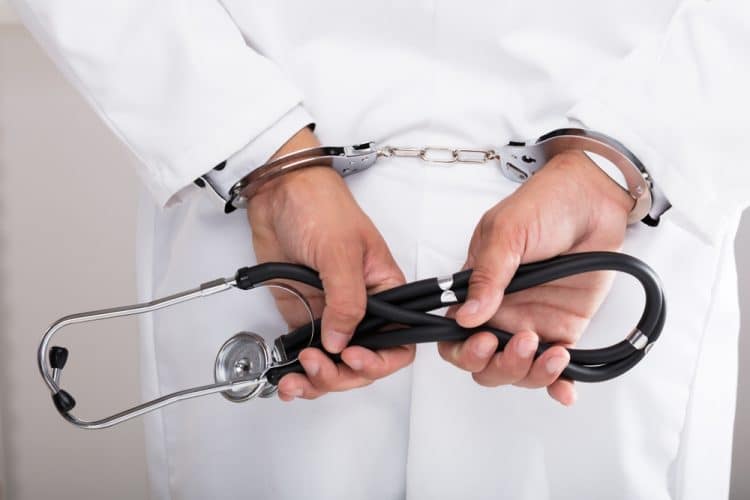Understanding the difference between medical negligence and malpractice can help you make informed decisions about what personal injury claims you want to file. But between treating your injury, making adjustments to your lifestyle, and coping with the emotional distress that personal injury often entails, most victims of negligence or malpractice don’t have the time (or the patience) to sift through a bunch of legalese regarding malpractice vs. negligence.
That’s why the medical malpractice lawyers at the nationally-recognized law firm Mithoff Law created this guide.
Our goal is to clarify what exactly is the difference between negligence and malpractice. For hands-on help understanding the difference between negligence and malpractice as well as other aspects of your case, contact the Houston personal injury lawyers at Mithoff Law by calling 713-654-1122 today.
Medical malpractice vs. negligence
To grasp the differences between negligence and malpractice, you must understand what negligence means within personal injury law.
What is negligence?
Within personal injury law, negligence is the concept used to define whether a person’s or company’s carelessness or recklessness injured you. The end goal is to hold that person/company liable for the damages you received as a result of that injury.
To prove negligence, you and your personal injury lawyer must prove that:
- Someone or some institution has a legal duty to protect your safety;
- That they have breached that duty;
- That the breach of that duty is the cause of your injury;
- You have been injured as a result of that breach.
These for elements of proving negligence are often abbreviated as duty, breach, causation, and damages.
What is medical negligence?
Medical negligence includes the same four elements described above, but with a few qualifiers. To sue for medical negligence, the person you’re accusing must be a medical professional or institution. Medical professionals/institutions include nurses, doctors or hospitals with whom you have a provider-patient relationship.
To establish a breach of care, your lawyer must state how the professional’s actions violated an accepted medical standard of care. Did the person or institution act similarly to how other trained professionals would have in the circumstances surrounding your situation?
What is medical malpractice?
The extent to which their actions vary from the accepted medical standard of care can help determine whether the injury was caused by an avoidable but unintentional mistake (medical negligence) or an intentionally negligent action (medical malpractice).
In other words, the biggest difference between medical negligence and malpractice suits is that a medical malpractice suit aims to prove that the professional’s actions were intentionally reckless. To put it even more bluntly, medical malpractice is a graver charge than medical negligence.
Can I sue for negligence or malpractice if I wasn’t injured?
No. Negligence and malpractice are types of personal injury law. If a medical professional’s recklessness did not result in your harm, you cannot sue for negligence or malpractice.
Additionally, your being injured does not mean you have a medical negligence case. The human body is exceptionally complicated and our understanding of it is imperfect; doctors and nurses must have a reasonable amount of leeway.
If a medical mistake is deemed reasonable within the accepted standards of care, then you don’t have a case. This is considered true even if a doctor’s, nurse’s, or hospital’s actions resulted in your injury or harm.
Medical negligence, medical malpractice, and damages
Patients who win a suit or receive a settlement are entitled to different types of damages. These damages include special damages (such as medical bills) and general damages (such as pain and suffering).
In some cases of medical malpractice, the court can decide to further punish the responsible party by assigning them punitive damages. Punitive damages are never awarded alone, but always in addition to general or special damages). They are not compensation for a victim’s needs. However, they are awarded in part or fully to the victim of medical malpractice.
For more information regarding damages, please read our article, Types of Personal Injury Compensation.
Now that you know the difference between negligence and malpractice, it’s time to act
To prove medical malpractice, your attorney must be able to pinpoint when the medical professional chose to act against your best interests.
Considering that what is an appropriate standard of care for a heart attack victim varies from what is an appropriate standard of care for a broken bone, it’s important that your personal injury lawyer can navigate these complex differences and has a network of reliable expert witnesses.
The personal injury lawyers at Mithoff Law have both the skills and the tools to fight for you and win. We have helped our clients receive billions of dollars in compensation and have been part of some of the most precedent-setting medical malpractice cases of the last century.
Knowing the difference between negligence and malpractice is important. But getting qualified legal representation for your medical negligence or malpractice case is critical.
To request a free consultation with one Mithoff Law’s trusted personal injury lawyers in Houston, call 713-654-1122 today.
More Helpful Articles by Mithoff Law:
- Questions to Ask a Truck Accident Attorney in Texas
- Bus Accident Law Firms: 5 Signs of Quality
- Houston Chemical Plant Explosion Cases: How We Win
- Dealing with the Plane Crash Aftermath
- What to do After a Car Accident: A Lawyer’s Guide
